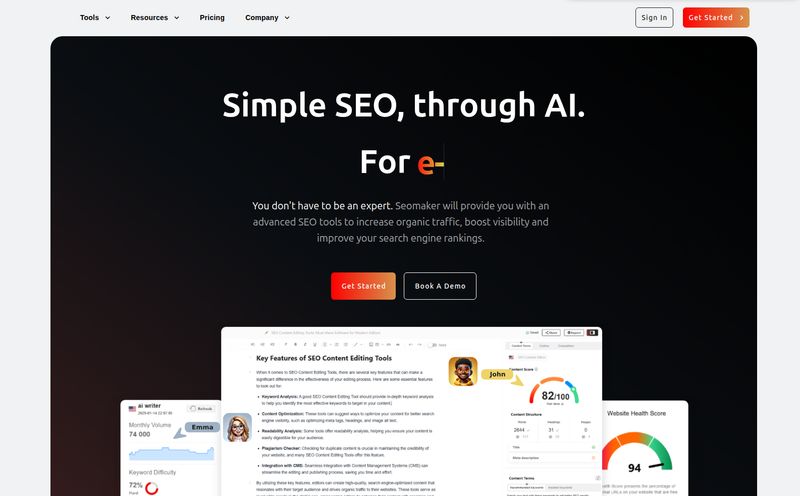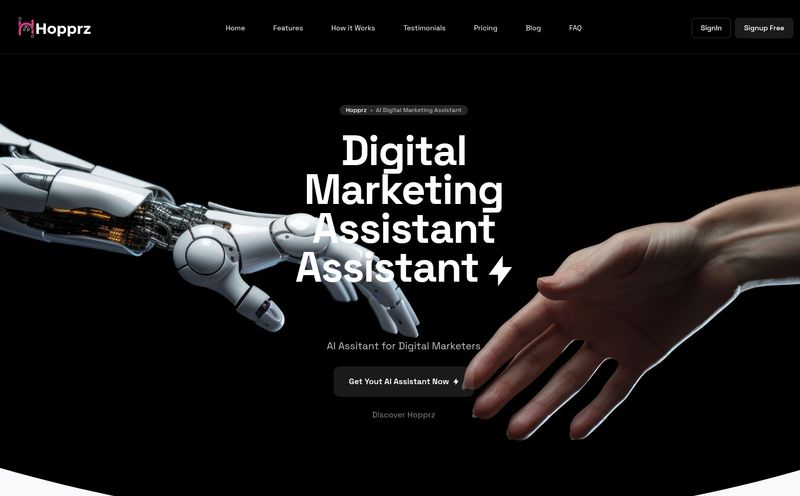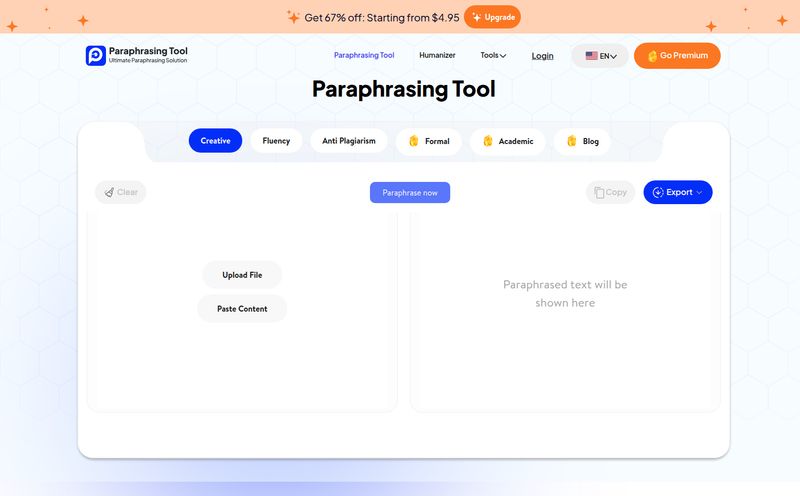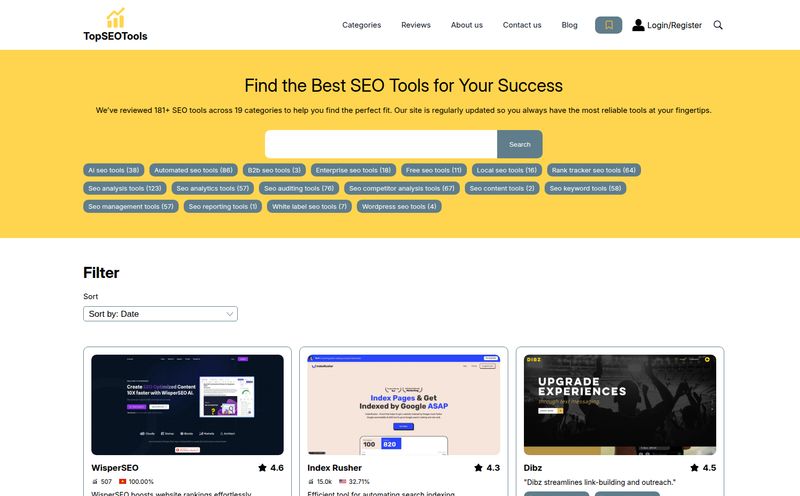If you're in the SEO game, your Chrome browser probably looks like a chaotic toolbox. You've got an extension for keywords, one for checking on-page stats, another for scraping headers, and probably three others you forgot you even installed. It’s a classic case of “extension fatigue.” We download these shiny new tools promising to revolutionize our workflow, and they end up just becoming more digital clutter.
I've been there. So, when I first heard about Onpage.ai, my initial reaction was a healthy dose of skepticism. Another all-in-one solution? Sure. But then I saw its tagline: "Built for SEO Excellence. Simplicity, Unlimited Use and Generative AI." That blend of simplicity and power... it got my attention. I decided to give it a spin, half-expecting to uninstall it within a week.
Spoiler alert: It’s still pinned to my toolbar. And I use it. A lot.
What Exactly is Onpage.ai? Beyond Just Another SEO Tool
At its core, Onpage.ai is a Chrome extension designed to streamline the messy process of content creation and competitive analysis. Think of it less as a single-purpose gadget and more like a Swiss Army knife for the content-focused SEO. Instead of having your research in one place, your draft in another, and your competitor analysis scattered across a dozen open tabs, it aims to bring everything into one cohesive workspace, right in your browser.
The whole idea is to stop the constant context-switching that drains our creative energy. You’re on a competitor's blog post? You can analyze it, pull key snippets, and start outlining your own, better version without ever leaving the page. It's a workflow enhancer, and in an industry where time is traffic, that’s a pretty big deal.
The Features That Actually Matter to a Working SEO
A long feature list is nice, but what actually moves the needle? After using Onpage.ai for a while, a few core components have become indispensable to my daily grind.
Instant On-Page SEO Analysis (Without 10 Tabs Open)
You know the drill. You want to see a competitor's H1, meta description, word count, and schema. So you open their page, right-click 'View Page Source', and start squinting at lines of code. Or you run it through an external tool, wait for it to crawl, and then sift through the report. It's clunky.
Onpage.ai puts a clean, digestible on-page report just a click away, for any page you're on. It instantly pulls all the crucial elements—headings, title tags, image alt text, internal/external links, and more. This has saved me an absurd amount of time on quick competitive research. It’s not about deep backlink analysis; its about a fast, accurate snapshot of a page’s structure. And sometimes, that's all you need.
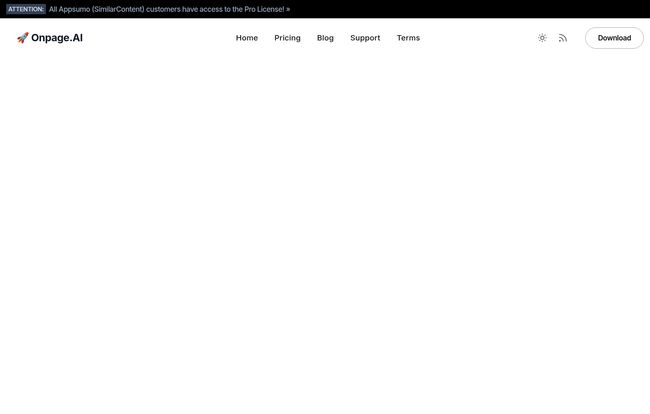
Visit Onpage.ai
The Webdraft Tool - Your SEO Scrapbook on Steroids
This feature surprised me. I thought it would just be a simple notepad, but it's much smarter. As you browse the web, you can highlight any text—a killer statistic, a competitor's clever turn of phrase, a customer pain point from a forum—and send it directly to your 'Webdraft' with a single click. It's like creating a digital mood board for a blog post.
Before, my process involved a messy Google Doc filled with pasted links and disjointed notes. Now, I can build a structured collection of research snippets, stats, and ideas tied to a specific project, all within the extension. It keeps the creative process fluid and organized. A real game-changer for anyone who has to write content based on heavy research.
Conquering 'People Also Ask' with the PAA Content Tool
Google's "People Also Ask" boxes are a goldmine for understanding user intent and building topical authority. Manually harvesting and answering these questions is tedious work. The PAA Content Tool inside Onpage.ai is just brilliant for this. It extracts PAA questions related to your target keyword and, using its AI integration, can help generate structured answers or content briefs based on them.
This is huge for quickly building out comprehensive FAQ sections or even entire articles that directly address the things your audience is actively searching for. It's a direct line to satisfying user intent, and Google loves that.
Topic Clustering and Modeling - Seeing the Bigger Picture
Okay, this one is for the strategists out there. Building one-off blog posts is fine, but the real traffic comes from creating topic clusters—a main "pillar" page about a broad topic, supported by several in-depth "cluster" articles on related subtopics. Planning this out can be a headache involving spreadsheets and mind maps.
Onpage.ai includes a tool to help you visualize these clusters. It helps you see the relationships between topics and plan a content strategy that establishes your site as an authority. You stop throwing content at the wall to see what sticks and start building a deliberate, interconnected web of information that both users and search engines appreciate. It turns content chaos into a coherent strategy.
The Good, The Bad, and The... Locally Stored?
No tool is perfect, right? Here’s my honest breakdown of the highs and the lows.
The good stuff is obvious. The convenience is off the charts. Having analysis, curation, and AI-powered ideation in one place fundamentally speeds up my workflow. It's an efficiency engine. The AI features, especially for PAA and content structuring, are genuinely useful and not just a gimmick.
Now, for the quirks. First, you need your own OpenAI API key for the AI features to work. For a seasoned pro, this is no big deal—we probably have one already. But for a beginner, it's an extra step and a potential cost (though OpenAI's API is incredibly cheap for this kind of usage). It's just something to be aware of.
The most interesting 'con' is that Onpage.ai relies on local storage. This is a double-edged sword. On one hand, I actually love this. My research, my notes, my content drafts—they all live on my computer. They aren't sitting on some company's server waiting to be data-mined or lost in a breach. It’s private. On the other hand, if my laptop decides to take an unfortunate swim in a coffee mug, that data is gone unless I've been diligent about my own backups. So, responsibility is on you. Finally, the number of devices you can use it on depends on your license, which is pretty standard practice for software these days.
What's the Damage? A Look at Onpage.ai Pricing
Alright, the big question. How much does it cost? As of this writing, specific pricing information wasn't readily available in the materials I reviewed. This is pretty common for new and evolving tools, as they often test different models like lifetime deals (LTDs) or tiered subscriptions.
Your best bet is to head straight to the source. Check out the official Onpage.ai website for the most current pricing and to see if they have any special offers running. I've often found that getting in early with a tool like this can land you a really good deal.
My Final Verdict - Who is Onpage.ai Really For?
So, who should drop what they’re doing and install this?
In my opinion, Onpage.ai is a fantastic fit for the solo blogger, the freelance content creator, and the in-house SEO manager who is hands-on with content strategy and creation. If you're the one actually doing the research, outlining, and writing, this tool will feel like it was built specifically for you. It removes friction from the creative process.
Is it for a massive enterprise agency that already has a multi-million dollar, proprietary software stack? Maybe not as a primary tool, but even then, I could see individual SEOs using it for its sheer speed and convenience on specific tasks.
For me, it has earned its permanent spot. It doesn't try to replace my big guns like Ahrefs for backlink analysis or rank tracking. Instead, it perfects a different, equally important part of the job: the on-page and content creation workflow. And it does that exceptionally well.
Frequently Asked Questions about Onpage.ai
I've gotten a few questions from colleagues since I started using it. Here are the common ones.
- Do I need a paid OpenAI subscription to use the AI features?
Not a full ChatGPT Plus subscription, no. You just need an OpenAI API key. You can get one from their platform, and you're only billed for what you actually use, which for most users will amount to just a few dollars a month, if that. - Is Onpage.ai safe? What happens to my data?
The tool uses local storage, meaning all your notes, drafts, and research are saved directly on your computer's hard drive. This is great for privacy, as the company doesn't have access to your work. The flip side is that you are responsible for backing up your own computer. - Can it replace my Semrush or Ahrefs subscription?
No, and it's not trying to. Think of it as a different tool for a different job. Onpage.ai is a specialist in on-page analysis and content creation workflow. It complements tools like Ahrefs, which specialize in off-page factors like backlinks and large-scale rank tracking. You'll likely still want both. - Does it work on any website?
Yes. As a Chrome extension, it can be activated on any webpage you visit, allowing you to analyze competitors, news articles, forums, or any other source of inspiration. - Is there a free trial available?
Software offerings change all the time. The best way to know for sure is to visit the official Onpage.ai website to see their current offers, which might include a trial, a free version, or a special launch price.
Conclusion - Streamlining Your SEO Workflow
In the end, the best SEO tool is the one you actually use. Onpage.ai has managed to become one of those for me because it’s not just powerful; it's practical. It integrates so smoothly into the tasks I’m already doing, making them faster and more organized. It's a thoughtfully designed tool that understands the pain points of content creation.
If you feel like you're drowning in tabs and wish your research and writing process was a little less chaotic, I'd genuinely recommend giving it a look. It might just be the thing that brings a little bit of zen back to your SEO grind.
Reference and Sources
- Official Website: https://onpage.ai/
- OpenAI API Platform: https://platform.openai.com/
